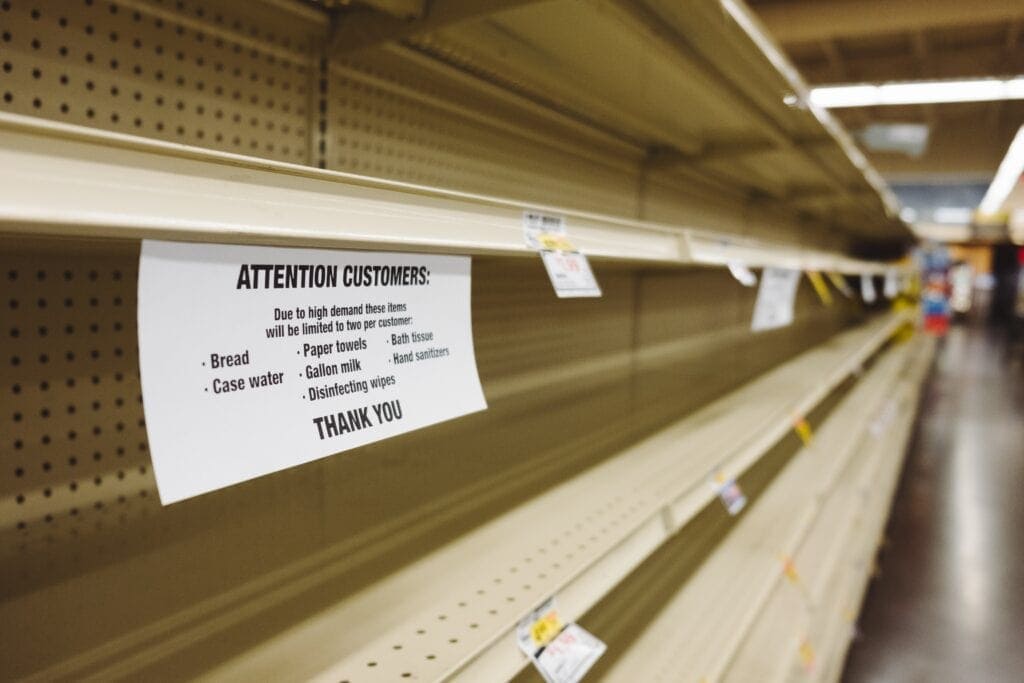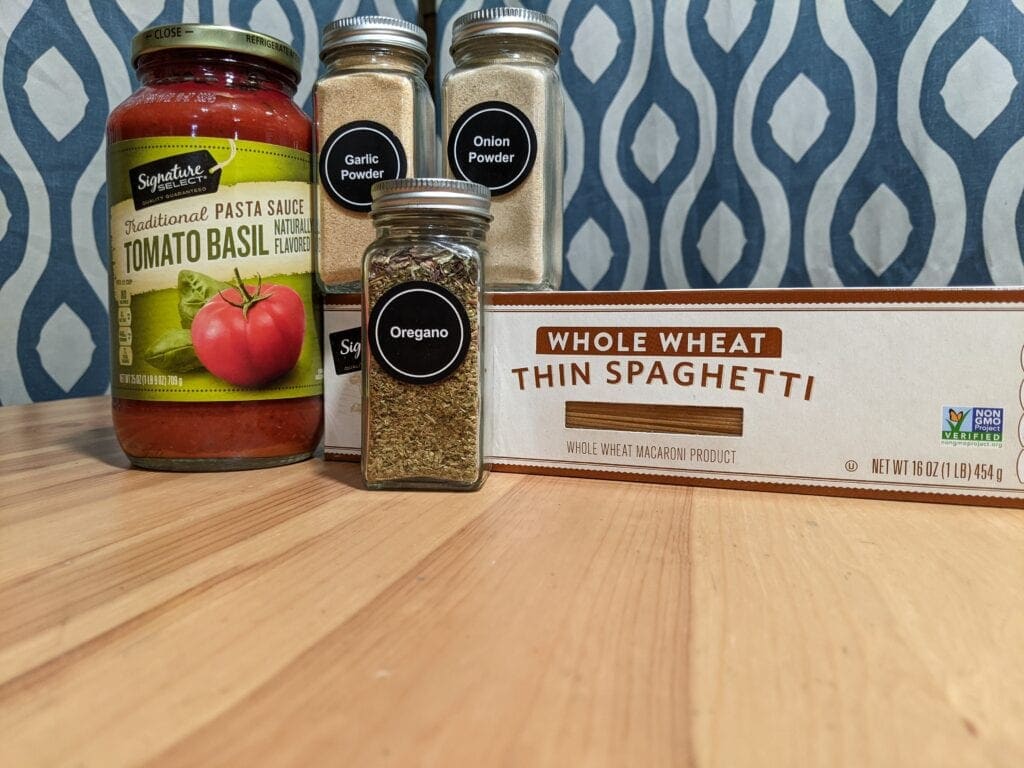As we work towards self-sufficiency, I think it’s important to look at food storage and what it should be. You see there is a very common misconception as to what food storage should be vs what it has the potential to be.
You might have stumbled across this post looking at what you should put into food storage. You might feel that food storage should be full of #10 cans and freeze-dried food. This is a common misconception in my opinion.
No, don’t get me wrong. I still believe that you should have some dried food for long-term storage. But this is NOT what food storage is all about. Food storage is about having the food you need to feed yourself and your family during a crisis AND everyday life.
This misconception is also the cause of millions of pounds (my assumption) of wasted food.
Let’s look at why you should have food storage and then I will loop back to where this misconception comes from and how to overcome it.
Why should you have food storage
You hear all the time about ‘prepping’ and storing food and essentials for when crap hits the fan. And many are totally unprepared in these scenarios. Floods and other natural disasters can cut you off from society.
As we have seen with the pandemic, panic buying can quickly take out your local store. The stores do not have enough on the shelf to combat a run on a certain product. People will quickly purchase as much as they can to try and take care of their own. Fear is a powerful motivator.

The basic idea behind food storage (or essential stores) is to have enough on hand to cope with these situations without having to panic buy. You can maintain your current rate or discontinue your shopping for a period without feeling extreme need or hunger.
But a CHTF does not need to be extreme such as a pandemic or natural disaster. Back in 2009, my life was humming along. I had just married Ashley, owned my house and these looked pretty good. My job made me more than enough and despite the economic downtimes my ‘bubble’ looked pretty good. And then it popped.
A month into our marriage I got laid off. All of a sudden we had no income. We ended up taking the money we had left to purchase a small stock of food to help us get by. Thankfully, we had friends and family help us. Some even shared their own food storage with us.
If we had our own, we could have better planned for and weathered the storm of job loss.
The catch with food storage
Many are trained that they need that freeze-dried goods. Of a million #10 cans of powdered this and that.
While those have their place and are great for bug-out type emergencies because they are quick to pack, there are in a sense two kinds of food storage.
If you don’t spend every day eating those dried foods when the time comes to need them, you might not even like them. I am sure some out there are scoffing at me going, who cares, you should eat what you have if it’s all you have.
But there have been times in history where this has been proven false. Children in the bread lines would rather starve than eat the random food they were being given.
What you eat today is going to be the same thing your body craves tomorrow. It’s not going to take kindly to an abrupt switch. And for those like me with a digestive issue that abrupt switch could end up doing more damage than good.
And since most people don’t eat the freeze fried foods, as those foods age out, they never eat them. The food gets thrown away because no one likes the taste or wants to eat them. Sure, some people work through it. But I bet many don’t.
Leading to millions of pounds of waste. Or worse, unusable goods when you need them the most.
A new(ish) take storage
What if instead, we stored the things we eat the most. I am sure I am not the first person to think of this.
I would be willing to bet that your family has a set of go-to meals that they cook on a regular basis. I know mine does. Could you convert some of these meals into food storage meals? Simply take the core ingredients and stock up extra of them.
For example, let’s say your family loves spaghetti and you have it on your menu for this next week. Instead of purchasing a single jar of sauce and box of noodles, buy two. Place them in a small rotation. You have just started your simple food storage.

Literally, EVERY item you have in your cupboards is food storage. And every extra item that is not planned in the current meal rotation can help you get through a tough stretch.
We all need to stop looking at food storage as this long-term never touched food. It should be your everyday food. I know this is not perfect. But think about what you can do with what you have.
Yes, there will also be a need for some freeze-dried foods. Meats are a big one here. If you don’t have the ability to store cold items, you will need some alternatives. And you need to plan for that ability to be removed, such as loss of power.
But think of the implications. You don’t have to have two separate lines of food. You just rotate through what you are already buying. Most off-the-shelf dry or canned items will last at least a year.
And if you can supplement the store purchased items with gardening and your own animal stock, you can easily make your storage larger or longer without minimal effort that almost never goes bad.
What if I can’t afford food storage?
No one is perfect. Do not ever stress what you have. You will be blessed for any effort you make.
Take as little as $5 a month, or a week. Use the smallest amount you can comfortably spend. Grab one or two items per trip. It’s not a race to the finish line. There is NO finish line. Do what you can.
You don’t have to spend a whole paycheck and instantly build your storage. This is what makes my thoughts on storing what you eat so affordable. You buy a little extra of the things you are already getting.
How much should I have?
There are different recommended time frames to have in storage. These can vary greatly from person to person, situation, and space available. No matter what you choose to have on hand, you can always keep expanding when you have the ability. Start with a week and work your way up to a year or more if you are able.
At the time of this writing, we have probably a month or so of basics. But it will be tight. And every time we shop, I will continue to grow it. Someday maybe we will have a year. But just like affordability, you should not stress what you have.
I wish every day we have more space to store things. But again, we do what we can. That’s all you should do as well.
Conclusion
Now you have a simple introduction to food storage. And maybe I got your brain going with some simple wins you can make this week or month in starting your food storage. Stay tuned for future articles on what else you should store and how to rotate your storage, so you never waste anything.



